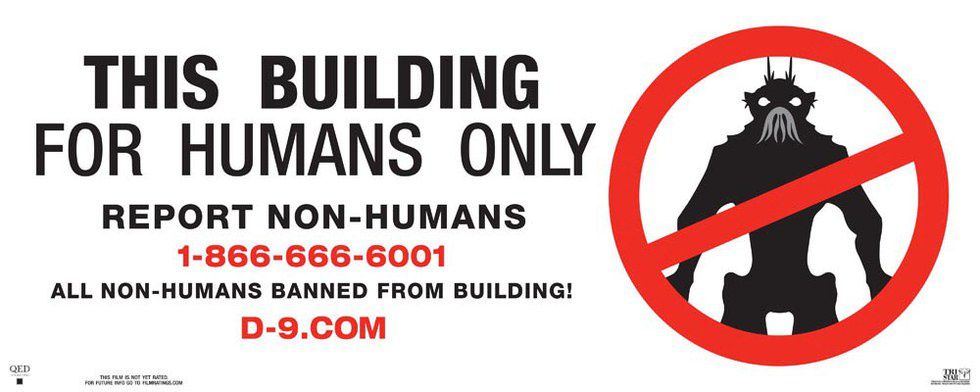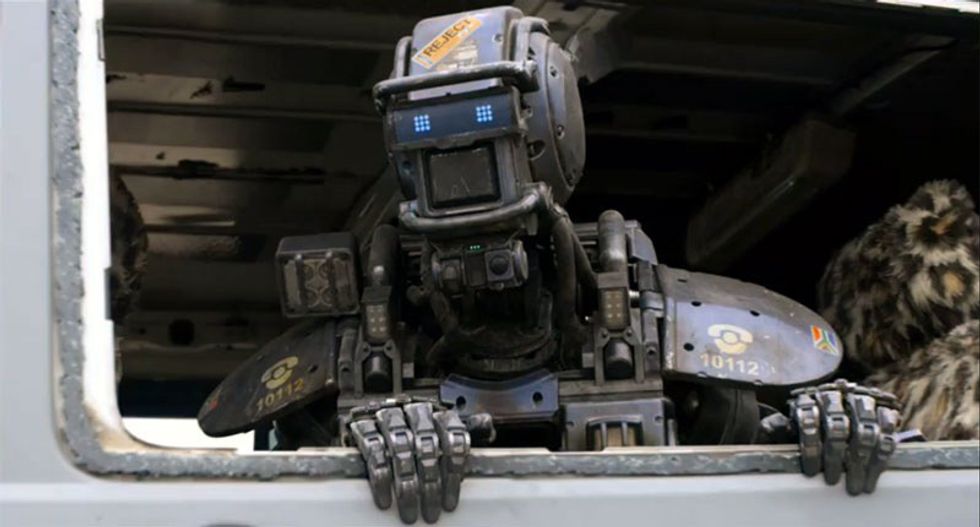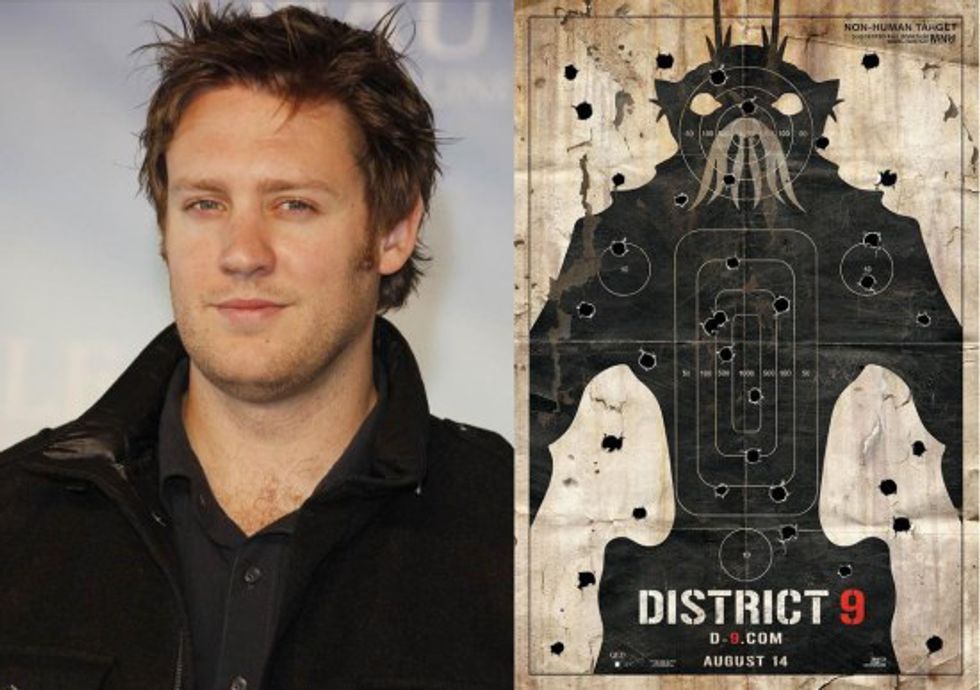Neill Blomkamp. One of the most significant, though not well recognized, filmmakers of our time. Having produced only three large scale productions, Blomkamp is still building steam as a filmmaker. However, in these three films, audiences have been stunned by breathtaking visuals, out of this world special effects, and gritty, down to earth storytelling. Even above all of this, one thing stands out. Blomkamp seems very adept at placing a bit of social commentary into the settings of all of his films. For example:
District 9 - )
Blomkamp's first film, and probably his most grizzly, finds us in Johannesburg, South Africa. Thirty-some-odd years ago, and alien massive alien ship came to rest above the city. It's occupants, refugees from another world, were pulled from their ship, given humanitarian aid, and granted shelter in a specialized camp. Unfortunately for all involved, the aliens never left, and "District 9" soon became a slum. Not accepted by the local community, these aliens (less than lovingly referred to as Prawns, after a local cricket considered a house-pest), scrounge around their stagnant community. The community is filled with violence, drugs, and criminality.
Sound familiar? To quote a family friend, "At first you think [District 9] is a movie about racism, until you find out it's actually a movie about racism." And that is about as simple as it gets. Blomkamp brilliantly captures the struggle of refugees seeking shelter in a new community, and the trials they face often because of racism. We experience the horror. And that is good, for those of us who never saw the racism of the 60's; it's good for those of us who don't live in the Middle East; it's good for those of us who didn't live in South Africa during brutal Apartheid times (clearly the main reference of the film. And here's the clever part: by using aliens, Blomkamp makes his point with without picking on any particular demographic. Humanity is the culprit, not one specific race---a solid choice for our times.
Elysium - )
In this second Blomkamp film, audiences find Matt Damon living in a futuristic Earth. Over industrialization has left the planet in a state of decay. The upper class has also left the planet, abandoning for a high-tech orbital facility called Elysium. And after a terrible work accident has left Damon with only a few days to live, he is determined that nothing will stop him from getting to that space station. In Elysium, their are devices that can cure any illness, and many desperate citizens will do everything they can to get there. Damon, it seems is no exception, doing a very dangerous heist to buy his way to this "heaven" in the sky.
On the more real side of things, Elysium shows us the divide between social classes. The rich separate themselves from the poor, greedily hoarding their perks and privileges, while the poor do all that they can to survive in increasingly unfavorable conditions. Blomkamp makes note of the clear gap, and the injustice of it. Simple enough, but he got his point across.
CHAPPiE - )
In Blomkamp's most recent work, we revisit the city of Jo-burg. A few years from now, a weapons corporation has produced a robotic police force. Everything's working just fine, until one young programmer takes a defective droid and attempts to give it "true" artificial intelligence. Too bad it get's kidnapped by a group of crusty reprobates, bent on using him for a big heist.
So his creator looks to instill him with a desire to learn and grow for good, while his criminal caretakers look to make him "tough and cool." And so we see Blomkamp's final bit of commentary: the importance of child-rearing. Chappie, this robot from a divided upbringing, must learn to balance the influences of his parents. Audiences watch him sway back and forth, imitating the habits and mindsets of whoever is closest to him. Squirming, we cringe as we hear him start dropping F-bombs, and trying to harm individuals. He learns to paint while with his maker, and learns to steal cars while with his unfortunate father figure.
This man clearly has a lot to say in his movies. His ideologies, his world views, and his beliefs are all tucked away in the underpinnings of his films. And that is the purpose of the medium. It's not just a platform for telling stories. Film is a window into the soul of the writer. Viewers can look in and see the beating heart of the author. What makes him tick? What does she care about? Blomkamp's films are prime examples of what can happen if a writer maximizes this facet of the medium. Any writer who can do that can create something truly powerful.















































